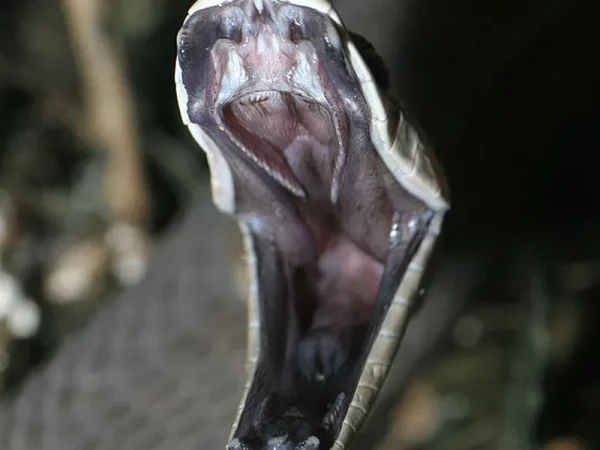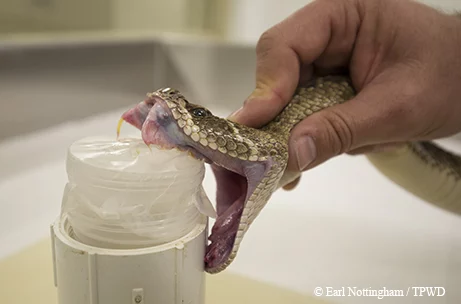The venom of the black mamba (Dendroaspis polyepis), known for its ability to cause death within just 20 minutes, has become an unexpected source of inspiration for modern medicine. Among the dangerous compounds of this snake, two special proteins, called mambalgins, have been shown to have powerful pain-relieving effects comparable to morphine but with fewer side effects. This discovery was published in the journal Nature in 2012 by Sylvie Diochot’s research team, opening up significant opportunities for the development of opioid alternatives in pain management.
One of the standout advantages of mambalgins is that they do not cause the typical side effects such as nausea, constipation, or the risk of addiction that are commonly seen with opioid drugs. When tested on mice, scientists found that mambalgins helped the mice tolerate higher temperatures on their tails and feet for over twice as long as the untreated group. Additionally, mambalgins reduced pain sensitivity caused by tissue inflammation without affecting the mice’s respiratory rate – a side effect commonly induced by opioids.

The mambalgins proteins work by binding to and inhibiting acid-sensing ion channels (ASICs), which play a crucial role in transmitting pain signals. “Initial studies have shown that mambalgins can inhibit certain types of ASIC ion channels in humans in experimental settings, opening up many promising drug development targets,” the research team noted. What sets this compound apart is its ability to affect various subgroups of ASICs depending on the injection site, allowing scientists to tailor treatment methods for specific types of pain.
However, a significant challenge today is how to translate mambalgins into clinical applications. Although the initial trial results are promising, scientists still need more time to better understand the mechanisms of ASIC ion channels, as well as the long-term safety and efficacy of the drug in humans.
“Mambalgins not only bring hope for a safer pain-relief solution but also highlight the boundless potential of the natural world in the field of medicine,” according to the research team published in the journal Nature.
It’s not only the black mamba; compounds from the venom of various other animals have also been successfully applied in medicine. A prime example is Prialt, a painkiller based on the venom of the cone snail (Conus magus). This emphasizes that nature continues to be a vital source of inspiration, helping humanity discover groundbreaking solutions to improve quality of life.

The discovery of mambalgins not only has scientific significance but also challenges the conventional view of venom – transforming it from something lethal into a source of life. This is a clear example of the power of collaboration between science and nature in finding more sustainable, safer, and effective solutions for modern medicine.


HPX24h > Animals > The Potential of Black Mamba Venom in Developing New Painkillers
Top Reads from This Category
Animals
Male Spiders Sacrifice Themselves to Protect Future Generations
Animals
Stickleback Fish’s Secret to Adapting from Saltwater to Freshwater: How Genetic Mutations Enable Remarkable Adaptation
Animals
Explaining How Mosquitoes Can Fly Through a Rainstorm
Animals
Why Bedbugs Thrive Through Inbreeding
Animals
The Survival of Orangutans: When Endangered Orangutans Have to Digest Their Own Muscles to Survive
Animals
Secrets to Surviving Antarctic Freezing Cold Through RNA Editing
Animals
Bee Wax Bust of Nefertiti: The Perfect Fusion of Art and Nature
Discover New Topics
Health
5 Essential Things Every Woman Should Know About Menopause
Fitness
Fat-Burning Heart Rate: The Key to Optimizing Your Workout
Science
The Science Behind CRISPR: Can Animal Genetic Modification Lead Us to a Better Future?
Animals
Rats Help Each Other: When Compassion Emerges from Small Creatures
Animals
Can Maggots Heal Wounds Faster Than Surgery?
Science
Stem Cell Liver Regeneration: A New Solution for Patients with Severe Liver Failure
Space
Gamma Ray Bursts and the Key to the Chemical Composition of the Early Universe
Healthy Eating
MIND Diet – The Secret to Protecting the Brain and Preventing Cognitive Decline
Space
The Relationship Between Star Formation and the Activity of Supermassive Black Holes
Healthy Eating
Gallbladder Protection Through Diet: Expert Guide and Practical Tips
Science
The Secret of the Bee Brain: New Technology Enables Drones to Fly Independently
Parenting Tips
Excessive Night Sweating in Children – A Normal Occurrence or a Cause for Concern?
Parenting Tips
How to Talk to Your Child About Drugs Effectively